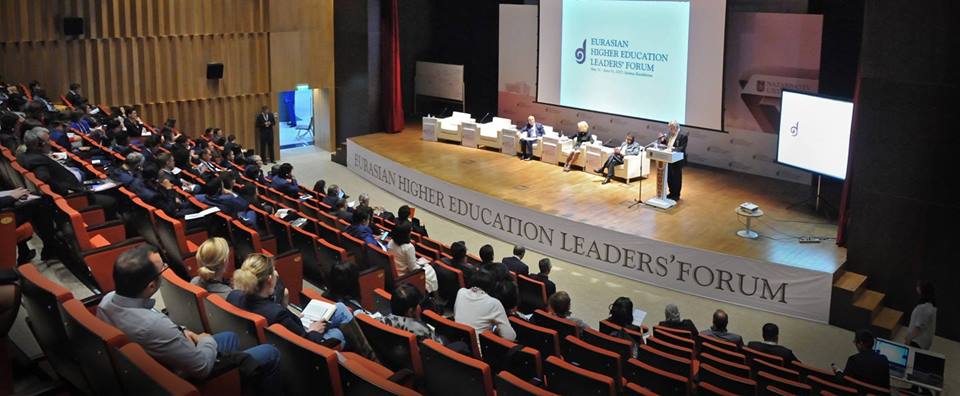ASTANA – Higher education leaders, scholars and representatives of government bodies gathered June 7 in Astana for the annual Eurasian Higher Education Leaders Forum to share their ideas, expertise and experience in changing higher education to meet the challenges of the age of disruption.
Kazakh Secretary of State Gulshara Abdykalikova in her welcoming address highlighted the significance of educating specialists in new formats, following advanced training programmes, so that in the future they are competitive on the labour market.
Higher education stakeholders, faculty members, scholars, government employers, education associations and organisations from 11 countries discussed social and technological changes that affect higher education and its development in today’s rapidly changing environment.
“Every year in early June we organise and run this conference; each year we try to identify and discuss a topic that is highly relevant. We thought that discussing the impact of technology on higher education would be a very appropriate topic this year,” President of Nazarbayev University (NU) Shigeo Katsu told the gathering.
He noted that technology will impact the way classes are conducted in the near future with an increase in distance learning and online classes. The act of learning will be concentrated at homes in front of computers or tablets, and it is important that universities adapt and respond to these external factors.
“We also want to make sure that our research is increasingly informed, meaning uses technology wisely. I think that the future is not in having fear of technology, robots or artificial intelligence, it is how we are going to collaborate and work with robots or artificial intelligence,” Katsu added.
He stressed that it is important that scientists develop a strong background in social sciences and humanities. At the same time, future philosophers increasingly need to be numerically literate and understand the basics of computers and programming.
Forum participants also discussed the transfer of experience in NU regarding curriculum development and academic personnel recruitment with faculty members and board members of domestic and foreign educational institutions.
“I think that international collaboration is critical for the success of NU or other universities in Kazakhstan. Providing opportunities for students to have an outlook is critical for the success of the students today. So I think that connection with international partners, international universities is important for everybody,” said Benjamin Wah, provost of the Chinese University of Hong Kong.
He also noted the NU experience is a great model for the country to follow, and that it was something that all countries aspiring to excel in educational research should investigate. A transformation in terms of developing excellency in learning and research will be critical for the success of Kazakhstan in the future, he said.


